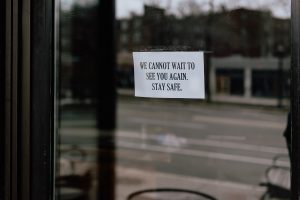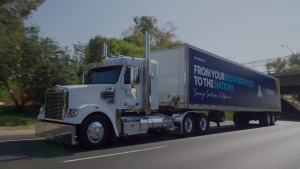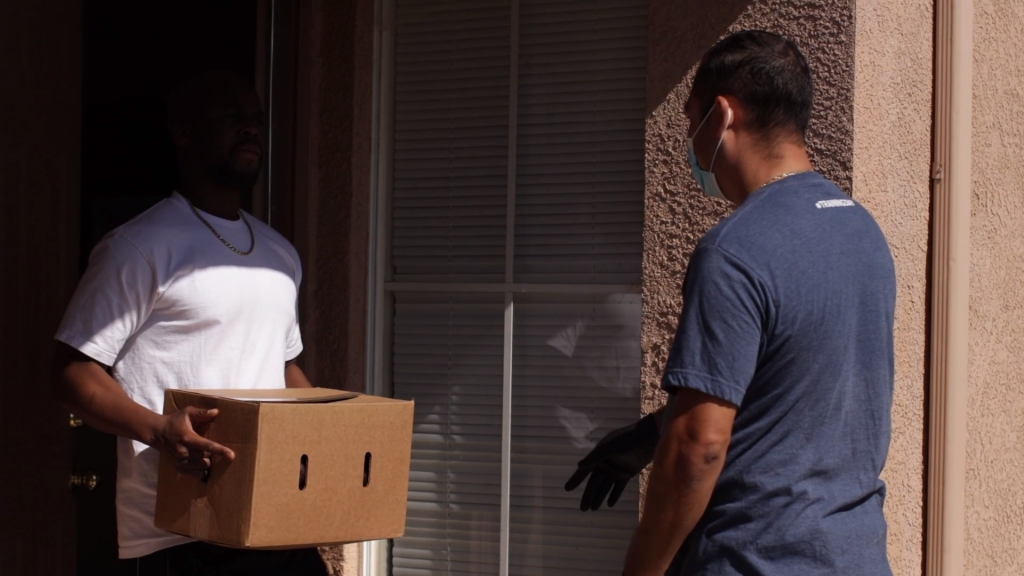A YEAR OF HARDSHIPS
No one can argue 2020 so far has been an unexpected year of hardship and suffering. The coronavirus pandemic; political and social unrest; massive fires and storms, have generated an immense amount of pain in our nation this year, and not to mention a dividing line the size of the Grand Canyon. All this has created a ripple effect of basic needs for survival, like food and shelter to be left unmet. Livelihoods are seemingly shattered overnight due to cities, counties, and states shutting down with pretensions to keep citizens safe and healthy. Households across the board are affected—some more dramatic than others. Loss of income when your household is already on a shoestring budget creates a scene of children crying for food and parents stricken with the anxiety of how they will provide. Business owners losing their entire customer base in a few short hours; account receivables on hold indefinitely producing the domino effect of account payables at a standstill. Leadership teams wonder “How will we keep the doors open?” How will we pay our employees?” It is the livelihood of hard-working people they feel responsible for.
Leadership teams wonder “How will we keep the doors open?” How will we pay our employees?” It is the livelihood of hard-working people they feel responsible for.
 The hardships and suffering are real. In a paradox, unemployment and hunger statistics are higher than ever in one of the most prosperous nations on the planet. Bureau of Labor Statistics (2020) reported the national unemployment rate is at 8.4%, significantly higher than prior to the pandemic. Food insecure households with children have increased drastically to 27.5% (Bauer 2020). The hardships and suffering are real. But look a little closer and you’ll see something monumental that has never happened. It’s not touted on mainstream media or most social feeds, but it is a newsworthy post. It’s a unique coming together of private enterprise, the public sector, and the faith community to serve people living in the “Last Mile of Need.”
The hardships and suffering are real. In a paradox, unemployment and hunger statistics are higher than ever in one of the most prosperous nations on the planet. Bureau of Labor Statistics (2020) reported the national unemployment rate is at 8.4%, significantly higher than prior to the pandemic. Food insecure households with children have increased drastically to 27.5% (Bauer 2020). The hardships and suffering are real. But look a little closer and you’ll see something monumental that has never happened. It’s not touted on mainstream media or most social feeds, but it is a newsworthy post. It’s a unique coming together of private enterprise, the public sector, and the faith community to serve people living in the “Last Mile of Need.”
MONUMENTAL COLLABORATIONS
It’s remarkably beautiful to see (for those who care to take notice) what kind of helpers have come out of the woodwork to serve households who are in desperate need through the USDA Farmers to Families Food Box Program. Leaders in each sector admit they can’t do it solely on their own—food suppliers bring the food, USDA provides the funding, and churches are equipped with people to serve. Organizations and leaders across different industries, both secular and religious, have come together to ensure people are fed with good foods, and they are doing it well and effectively.
Organizations and leaders across different industries, both secular and religious, have come together to ensure people are fed with good foods, and they are doing it well and effectively.
Some wonder–why haven’t we been working together long before?
It feels like churches and faith-based organizations have always been ready for global pandemics or natural disasters, mostly because houses of worship and people of faith are in the business of helping people—mind, body, and soul. That’s what they do.

Photo cred: Mercy Drops Dream Center
What has been made so special about current hunger relief in the faith community is how the USDA Farmers to Families Food Box Program has opened an avenue for food suppliers and farmers to work alongside churches and faith-based organizations in an aligned goal to feed Americans.
What has been made so special about current hunger relief in the faith community is how the USDA Farmers to Families Food Box Program has opened an avenue for food suppliers and farmers to work alongside churches and faith-based organizations in an aligned goal to feed Americans.Food supply companies have the logistic capabilities to get large quantities of food through their robust system but lack the model that takes the food to the people who truly need it.
GOLD STAR FOODS, INC.
Gold Star Foods, Inc., the nation’s leading school nutrition provider and USDA approved contractor of food boxes for round one and two of the Farmers to Families Food Box Program, made a halt-n-pivot maneuver in operations when the pandemic hit. Without knowing where the pandemic was going or how long it would last, Gold Star Foods had to shift its operations virtually overnight to continue the delivery of meals to families and children who needed it most. Gold Star, a division of GS Foods Group, distributed meals to schools but once students were sent home the food was still there but the outlet for distribution was gone. School cafeterias rallied with new models to feed children but still, the volume decreased drastically.
“It was actually extraordinary. The school cafeterias did a tremendous job, literally overnight. They put together emergency feeding programs with USDA waivers. But not the number of kids that would normally go to school participated. So their volume was down and so were the school lunch programs,” recalled Sean Leer, CEO of Gold Star Foods, Inc.
During the COVID-19 pandemic, the Farmers to Families Food Box Program not only supplied communities with needed nutrition, it also provided farmers and companies like Gold Star Foods, a division of GS Foods Group focused on school nutrition, a boost and helped secure jobs during a challenging economic landscape.
As the nation’s leading school nutrition provider – Gold Star was uniquely positioned to collaborate with the USDA on this fast-action and expansive program. Large-scale operations, deep supplier relationships and expertise in the nutrition supply chain allowed Gold Star to distribute food efficiently and safely during times of crisis. Due to its successful emergency response when schools across the nation began to shut down, Gold Star was prepared for round one of the USDA Farmers to Families Food Box Program as the distribution arm in Southern California. However, in round two of the food box program, Gold Star was awarded a contract as a vendor to deliver food boxes in underserved regions. Gold Star partnered with CityServe in this effort and found the HUB to POD distribution model a powerful and effective system they had yet seen to supply food to families living in the “Last Mile of Need.” From July 2 through September 18, 2020, Gold Star distributed 232,116 food boxes through the CityServe collaborative network in Colorado, Idaho, Minnesota, Montana, Nevada, Utah, Virginia, and Wyoming.
THE CITYSERVE DISTRIBUTION MODEL
 The CityServe distribution model is based on a HUB to POD supply chain.
The CityServe distribution model is based on a HUB to POD supply chain.
- A CityServe HUB is a church or faith-based nonprofit with the capacity to be the distribution center of food boxes to local churches, also known as PODs (point of distribution), in its geographical region.
- A POD is a local church coordinating with CityServe to receive food boxes from its assigned HUB and meet the needs of its neighborhood with compassionate giving and relationship building.
“Gold Star Foods was proud to collaborate with CityServe on the expansion of this critical program,” said Leer. “The partnership coupled Gold Star’s logistic capabilities and nutrition supply chain with CityServe’s established community HUBs – ensuring resources that made a difference got where they were needed most. It’s a really unique and powerful model.”
“Gold Star Foods was proud to collaborate with CityServe on the expansion of this critical program,” said Leer. “The partnership coupled Gold Star’s logistic capabilities and nutrition supply chain with CityServe’s established community HUBs – ensuring resources that made a difference got where they were needed most. It’s a really unique and powerful model.”
The Farmers to Families program created a way for organizations to work together for the collective good. There are many heroes who are credited with feeding families, not one individual or group. Because private companies are working with the faith-based community in this federal food program, nutritious foods are getting into people’s hands quickly. Time is of the essence when the need is staggering and catastrophic in almost every community.
The demand is particularly high on Native American reservations where poverty has already stricken the communities. Some grocery stores could be 50 miles or more from the reservations and a complete halt in employment makes it almost impossible to feed families. When truckloads of food boxes arrive for distribution, car lines are already formed over a mile long. With no street signs on the reservations, a car would meet them and caravan to a facility where they would wait for the truckload—families were willing to wait for food because of their extreme need.
THREE IS GREATER THAN ONE
The triad in the supply chain fills a need in every element—from the farmer who might have to discard a surplus of product, to the employees at the supplier and trucking companies that are laid off, to the families that are hungry. Farmers to Families plays a huge role in setting up a system where the infrastructure of the faith community is merged with private businesses to accelerate the process of feeding Americans.
It’s worthy to note, because of Farmers to Families, Gold Star was able to keep operations with two of their school food suppliers, Don Lee Farms and JTM Provisions, two companies whose volumes went to zero when schools shut down.
“The important thing is schools will be coming back and we need to make sure that these supply chains are still there and operational. So when schools start up again we’re all able to do our jobs, keep staff, and move food through to the schools,” Leer said.
PRODUCE ALLIANCE
Another national food supply company, Produce Alliance, has collaborated with CityServe for round three of the program, beginning September 24 through October 31, 2020, to distribute over 1.6 million food boxes in the following states:
- Louisiana
- Iowa
- Ohio
- Illinois
- Indiana
- New York
- Tennessee
- Florida
- North Carolina
- South Carolina
- Georgia
- Alabama
- Mississippi
- Washington
- Oregon
- Wisconsin
- Minnesota
Produce Alliance, a new USDA approved contractor, also experienced an abrupt stop in their food supply chain with a 60-80% loss of business. Prior to the pandemic, Produce Alliance had a diverse group of customers ranging from restaurants, schools, universities, hotels and airports.
Farmers to Families enables Produce Alliance to put employees back to work and deliver fresh, nutritious food through the supply chain to families who are in desperate need.
“The unimaginable took place when everything came to a halt,” said Melissa Melshenker Ackerman, president of Produce Alliance. “Overnight we lost customers, laid off staff and witnessed the same for our distributors as delivery trucks sat idle in their parking lots.”
The well-rounded, scalable distribution model in the HUB to POD supply chain was an attractive avenue for Produce Alliance as they joined forces with CityServe for possibly the most intricate leg of the operation—delivering food to the people who need it most.

“CityServe’s model truly takes the food deep into the community where the need is great. It’s our dream to be a part of this program and help people, which is why Produce Alliance is extremely excited to work with CityServe in distributing over a million food boxes.” Ackerman commented.
“CityServe’s model truly takes the food deep into the community where the need is great. It’s our dream to be a part of this program and help people, which is why Produce Alliance is extremely excited to work with CityServe in distributing over a million food boxes.” Ackerman commented.
Gold Star and Produce Alliance are two of the 45 USDA approved contractors that have been working side by side with CityServe to get food boxes to families in need since the launch of the food box program in May 2020. All share a similar story of supply chains coming to a standstill, product waste, and employee furloughs. Additionally, all have the giving spirit to help people in need and are grateful to play an essential role in feeding Americans who are suffering so greatly.
“Farmers to Families is the ‘American Trifecta’ to serve families living in the last mile of need. America’s great farmers, suppliers and nonprofits uniting to bring hope and help to so many negatively impacted by the pandemic. What a privilege it is for CityServe to partner with some of our nation’s finest companies like Gold Star and Produce Alliance.” – Dave Donaldson, CityServe co-founder
If your church or faith-based organizations would like to distribute Farmers to Families food boxes in your community, please visit www.cityserve.us/farmerstofamilies and apply today!
REFERENCES
Bureau of Labor Statistics 2020, The Employment Situation—August 2020, media release, accessed 22 September 2020, <https://www.bls.gov/news.release/pdf/empsit.pdf>
Bauer, L 2020, ‘About 14 million children in the US are not getting enough to eat’, Brookings, 9 July, accessed 22 September 2020, <https://www.brookings.edu/blog/up-front/2020/07/09/about-14-million-children-in-the-us-are-not-getting-enough-to-eat/>

Recent Comments